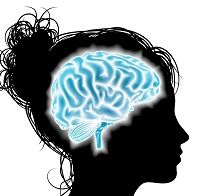Does the Analgesic Placebo Response Differ in Children?
There has been a great deal of study on the placebo effect in the medical literature, and despite some evidence suggesting that placebo response rates in randomized controlled trials are higher in children and adolescents compared to adults, there has only been limited research involving the placebo response of children.

Sports columnist Gregg Easterbrook, author of the popular Tuesday Morning Quarterback column that lived on ESPN.com for many years, often took flights into science and technology in his columns. One of his pet topics was the placebo effect; Easterbrook was a proponent of the school of thought that “Placebon” should be created and marketed, and that it would be the best-selling medication in the world.
Whether or not you agree with Easterbrook, it’s undeniable that the placebo effect—a perceived or actual improvement in a medical condition that results from a simulated or otherwise medically ineffectual treatment—is a constant in medical research and remains a controversial subject and an area of study beyond its impact on response to other tested medications and treatments.
There has been a great deal of study on the placebo effect in the medical literature, and despite some evidence suggesting that placebo response rates in randomized controlled trials are higher in children and adolescents compared to adults, there has only been limited research involving the placebo response of children.
A 2012 study in Headachefound that a high placebo response rate—as much as 50% or more in children suffering from migraine, is a confounding factor in the interpretation of medication therapy results. Another 2012 study in Pediatric Research made the case that “…if placebo response rates in clinical trials with children are higher than the response rates of adults with similar or other drugs/interventions in similar clinical conditions and across many diseases, then extrapolating drug efficacy in children from respective studies in adults runs the risk of underestimating the placebo response and overestimating drug efficacy.”
A new study in The Journal of Pain was, according to the study authors, “the first to experimentally explore placebo analgesia and influences of prior experience on placebo responses in children compared to adults.” The study looked at placebo responsiveness between children and adults in a well-established experimental model of placebo analgesia combining classical conditioning and expectationand found that placebo analgesic responses in children, while present, did not differ in magnitude from those of adults.
However, the study authors note that “…the influence of previous experience on subsequent treatment outcome was stronger in children than in adults, indicating an increased relevance of learning processes for treatment outcomes in children.”
While the results are not necessarily surprising, they do shed additional light on placebo response in children and adolescents. The study authors hope that future studies will look at the influence of treatment-related learning processes in children and adolescents.